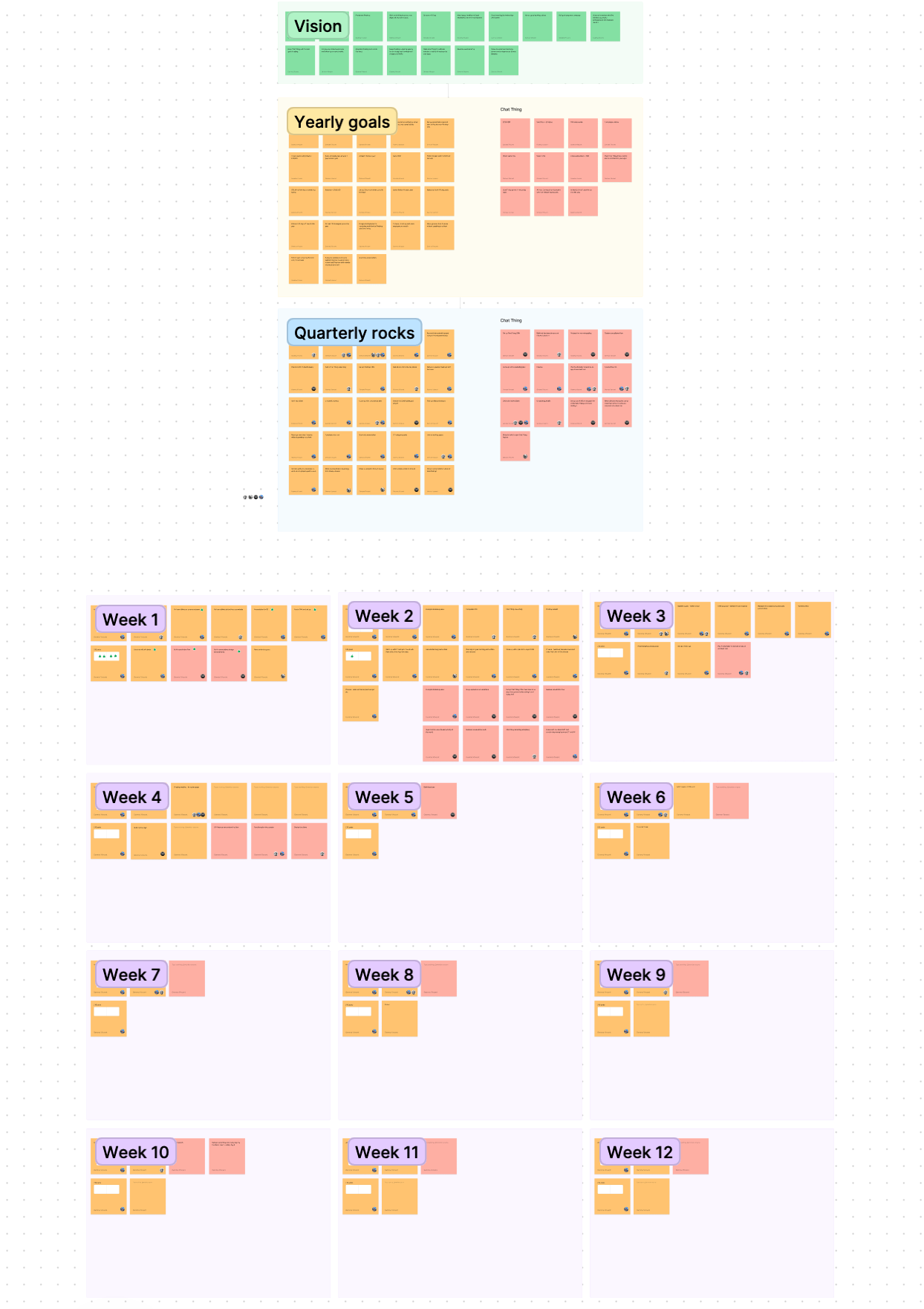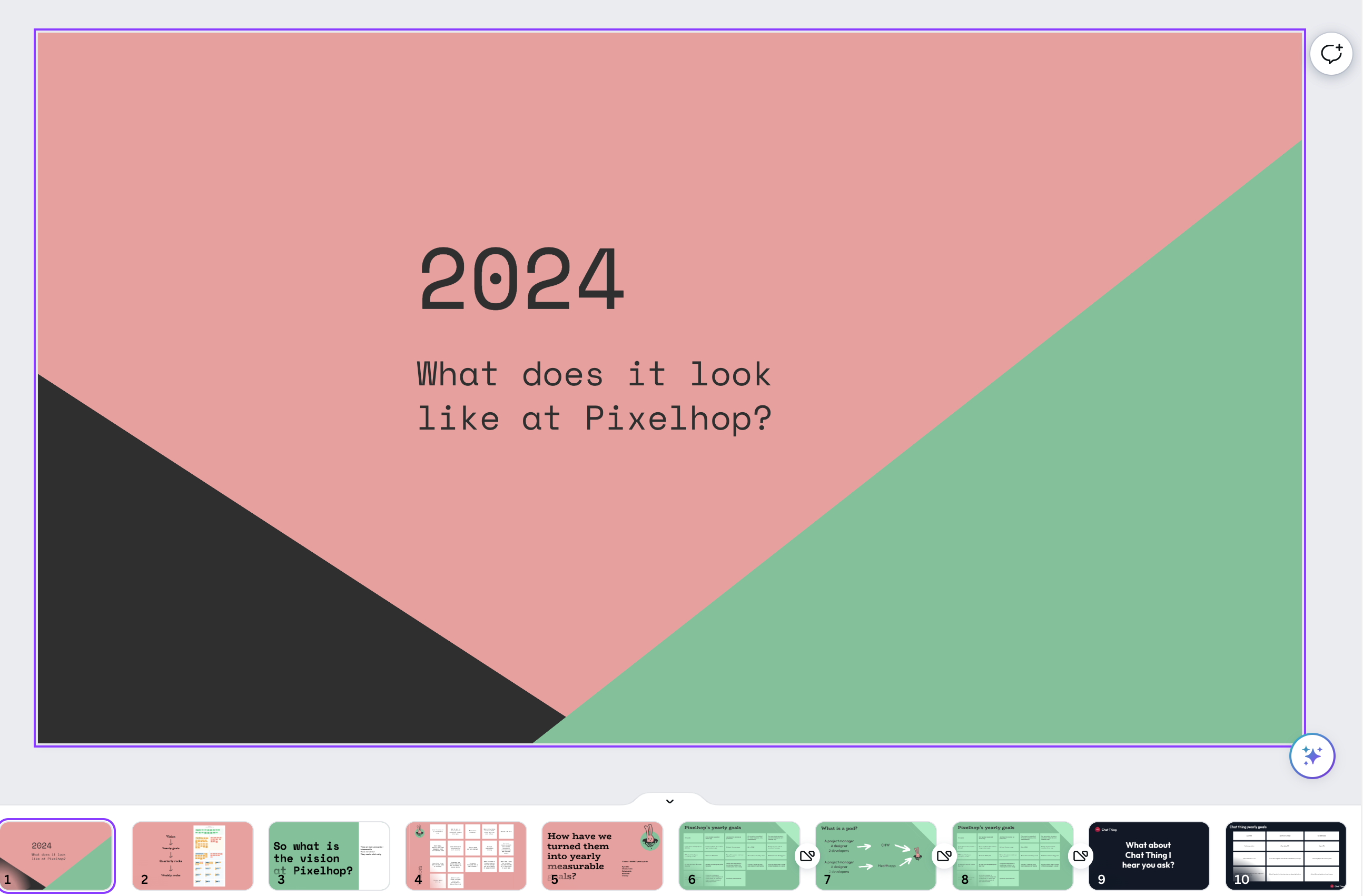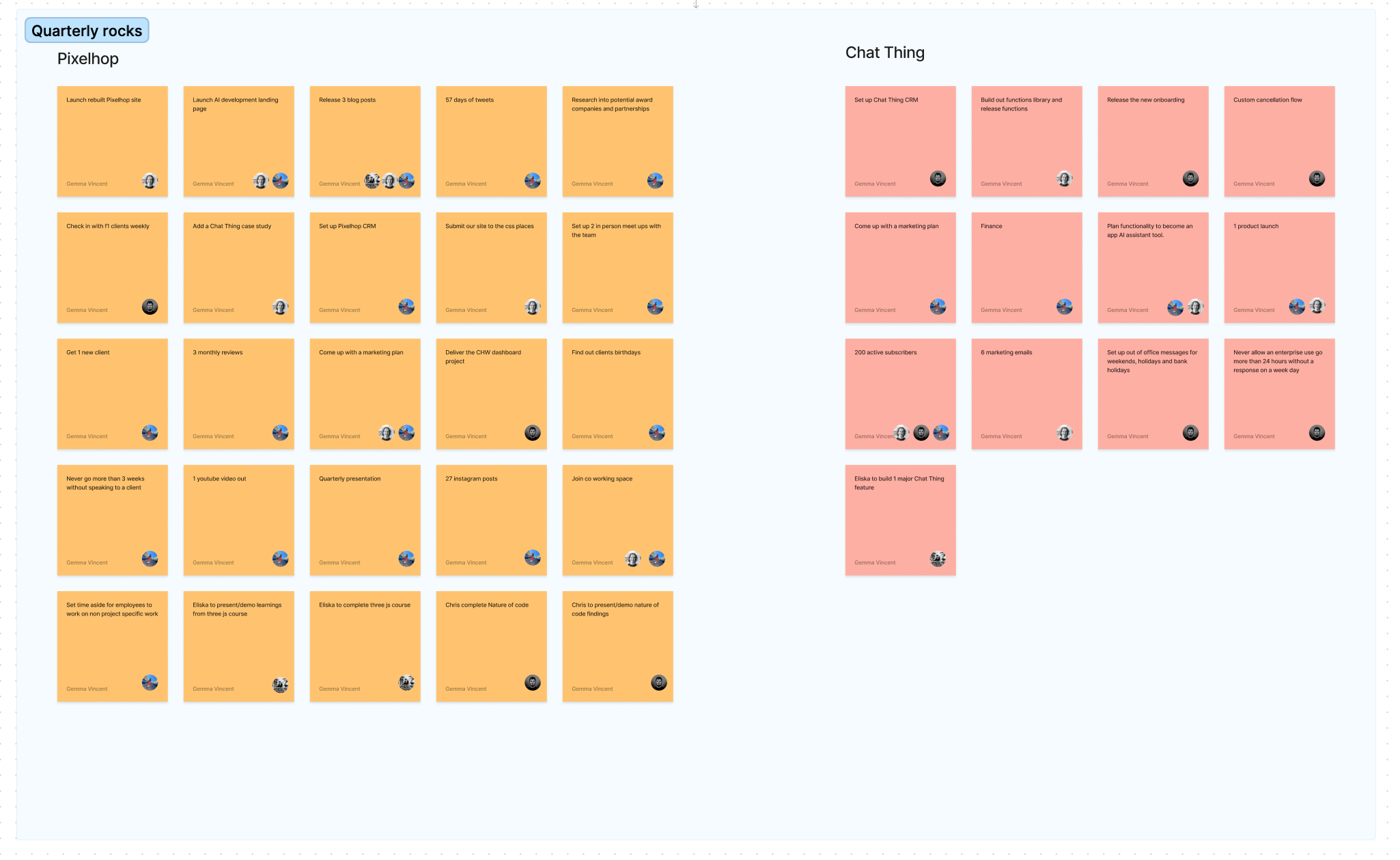Yearly goals and following our vision at Pixelhop
I thought I would write a blog post about how we plan our year, just in case it’s helpful to anyone that’s freelancing or running a small agency. For the last 5 years Zef and I have set goals for the year ahead both personally and professionally. Now that we have two businesses with very different goals we have upped our organisation for setting goals. We’ve taken inspiration from multiple places but I think we finally got something that works really well. Hopefully it’s of help to someone, it’s certainly helped us set clear goals, stay focused, and achieve our vision. Our planning method is hugely inspired by Gino Wickman's book "Traction: Get a Grip on Your Business," (great book by the way, I would highly recommend) and it revolves around turning your vision into actionable SMART goals. Let's dive into the details.

The Vision
The first thing we do is take a step back from all the little things we want to do. We look at the business(es) as a whole - Pixelhop and Chat Thing. We look at the type of things we want to be doing, the team we want to have, the work we want to be producing, the overarching dreams and goals. We look at where we want our businesses to be in a few years time, or maybe even longer. It doesn't have to be specific or measurable at this stage. It's a chance to dream big and think about the long-term goals without the pressure of time or logistics. This vision sets the direction for our yearly planning.
SMART Goals
To make our vision a reality, we need to break it down into Specific, Measurable, Attainable, Realistic, and Timely (SMART) goals. This step involves turning our dreams into actionable and realistic objectives for the year. SMART goals provide clarity and ensure that your efforts are targeted towards achieving specific outcomes. We did this for both Pixelhop and Chat Thing. Two very different businesses with very different goals, because of this it felt very important to be super organised and fully break it down.
Quarterly Rocks
Once we have our SMART goals for the year, it's time to break them down further into quarterly rocks. Rocks are the most important and strategic tasks that you want to accomplish during each three-month period. Prioritising these quarterly objectives allows us to focus on key priorities. It’s then really important to communicate this back to the wider team, we did this by presenting it. This means everyone’s on the same page and can see the future of the companies. It’s important we are all walking in the same direction, otherwise what’s the point?

What we then do is assign people to each of the rocks. At this stage we don’t mind having multiple people assigned to rocks. Because some of the rocks require multiple people.
We then break these rocks down even further into weekly rocks, where each rock then does only have one person, if it doesn’t the rock needs breaking down further. To ensure accountability and ownership, assign each weekly rock to a specific team member. This empowers your team and makes them responsible for the success of their assigned tasks. It fosters a sense of ownership and encourages team members to take initiative and contribute to the company's growth.

Discuss the objectives, expectations, and timelines so that everyone understands their role in achieving the company's goals. This alignment keeps the entire team motivated and moving in the same direction.
Regular Check-Ins
Every Monday, we review the weekly assignments and ensure that everyone is aware of their responsibilities. This allows for any adjustments or support to be provided as needed. On Fridays, have a check-in meeting to assess whether you've achieved what you set out to do during the week. This just helps us stay on track and if there’s any issues, they’re raised really quickly.
We’ve found that effective planning is super important for small agencies and business owners, especially now we are running 2 businesses. By starting with a clear vision and transforming it into SMART goals, breaking those goals into quarterly rocks, assigning tasks, aligning the team, and maintaining regular check-ins, you can ensure that every task has meaning and contributes to your company's growth. This method not only keeps you motivated but also empowers your team to take ownership and work towards shared objectives. So, if you're freelancing or running a small agency, consider adopting this planning approach to set yourself up for a successful year ahead.
0 Responses
Want to respond? Tweet this post!
Subscribe.
Like what you’re reading? Sign up to receive our updates straight to your inbox. No spam, unsubscribe anytime!
